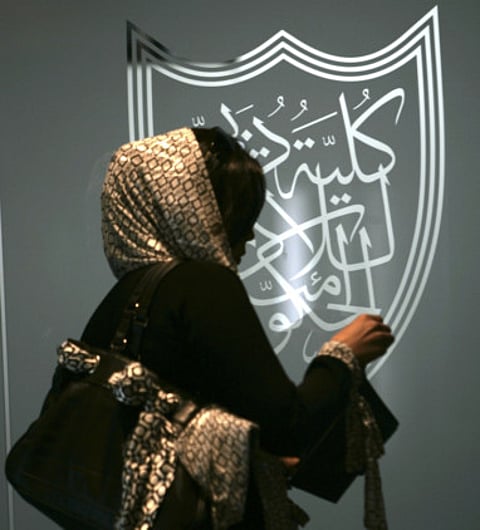Arabic-only curricula in the spotlight
Debate rages over the feasibility of the move as education experts argue that a bilingual module is best

Education experts have warned of the challenges in creating Arabic-only curricula in universities following a call from Federal National Council (FNC) members last month.
Jamal Al Mehiri, a cultural adviser in the Dubai government, recently said in a media report that lessons taught in English were a clear violation of the country’s constitution. “I am asking that the FNC require UAE universities and schools to teach in Arabic, otherwise we will take to court any university that imposes English on our children.” But experts say it’s not as easy forcing universities to change curricula into Arabic. Some courses cannot be taught in the language, say experts, because complex English terms do not translate well.
Dr Ashraf Khalil, Assistant Professor, Computer Sciences, Abu Dhabi University’s Al Ain campus, says it would be very hard to teach engineering and computer science in Arabic. “Technology is driven by Western society and ultimately is in English,” he says.
Dr Khalil has taught in the UAE for six years and doesn’t oppose Arabic instruction for other disciplines. “Arabic is very important. People here should know more. But first, we need to work on making sure there are equivalent science terminologies if we are to teach in Arabic.”
Dr Samer Al Samahi, Assistant Professor, Computer Engineering, Khalifa University, also feels there are challenges in implementing a curriculum strictly in Arabic. “The textbooks for engineering are all in English. This makes it almost impossible to teach engineering courses in Arabic,” he says, adding that the Arabic academic community would need to come to a consensus on terminologies before computer engineering could be taught in Arabic.
Dr Al Samahi also says that it is important for students to have English language skills to enter the workforce. Most companies in the UAE are international and they communicate with the world in English, he explains.
Dr Hussein Fakhry, Dean, College of Information Technology, University of Dubai, agrees that studying in an international language offers many benefits. “It gives them [students] more opportunities to join multinational companies or pursue postgraduate studies abroad.”
The FNC’s proposal raises questions about the role of Arabic in the UAE but educationists say the language is not being pushed aside. “The nation and language go together,” says Dr Al Samahi. “I see a lot of our students using Arabic outside the classroom. Students are proud to speak Arabic.” He maintains that English is used more as an educational tool than as an alternative. 7


